Kestrel Casey's Blog, page 7
October 4, 2016
The Definition of MOGAI
TOP DEFINITION
Marginalized Orientations, Gender identities, And Intersex. it’s meant to be an all inclusive umbrella term for asexuals, homosexuals, multisexuals, trans people, and intersex people. Alternative to LGBTQIAP+
***
The Issue
As long as we live in this society—one born from a mix of cultures and genders all trying to improve a country theoretically founded on Puritan ideals—we’re going to need words for the “other.” Anyone deviating from a straight, white, cisgender, reasonably affluent male is considered “other.” This single-viewpoint standard is (obviously) ridiculous, but we’re immersed in it. Some might say drowning.
Still, these “others” defying it by existing, creating, pushing, asserting their rights, and making us all talk about them. And as long as that’s the case, we need words.
Words for varying races, genders, sexual orientations, and other “deviations” change over time. Words commonly used as slurs get replaced as society evolves. Words that were intended to hurt get reclaimed. And sometimes, new words come in to common use through a genuine societal desire to be accepting and understanding. This is rare, but it happened in the case of “LGBT.”
LGBT, as you probably know, is “lesbian, gay, bisexual, and transgender.” It includes many people who have been historically maltreated based on a part of their core identity. It is the phrase that has been adopted up to and including politicians to describe certain collective communities. It’s a good start.
But LGBT isn’t enough.
People are DIVERSE. People experience gender, attraction, identity, and relationships in as many ways as there are individuals. While LGBT covers many of those people, it leaves out whole categories and completely ignores those who search their own identity and find a shade of grey.
Here’s a very short list of some people not included in “LGBT”: Asexuals, aromantics, people of non-binary gender, two-spirit, queer, questioning, pansexuals, panromantics…all kinds of different words that people feel match them best. And so “LGBT” became “LGTBQQIAA+”
“LGBTQQIAA+,” of course, has its own problems. For one thing, it’s LONG. People started referring to it as “the alphabet soup.” For another, it still doesn’t include everyone.
The Proposed Solutions
I am (obviously) not the first person to reach for a better term than “LGBTQQIAA+.” To be perfectly frank, that is too many characters long for something I tweet about so much.
One possible solution is “QUILTBAG.” (QUILTBAG stands for “Queer/Questioning, Undecided, Intersex, Lesbian, Trans, Bisexual, Asexual, Gay/Genderqueer.”) While reasonably inclusive, this has its own troubles. For one, it’s still long, and the longer something is, the less likely it is to be assimilated into the language. For another, imagine a political candidate saying it; “Our friends in the QUILTBAG community…”
Some people have proposed “GSD” for “Gender and Sexual Diversities,” which is short and inclusive but also can lead to confusion. For one, it hasn’t achieved anything like common use, and for another, the acronym has other meanings (German Shepard Dog, “Gettin’ Shit Done,” etc.). Related short acronyms have been suggested, but most suffer from the same problem or questionable origins.
Finally, we come to “MOGAI.” Though Urban Dictionary gets it a bit wrong (“A” obviously stands not for “identities” but for “alignments,” this acronym covers a very wide variety of people. It’s short, and it’s unlikely to be confused for anything else. It fits all the criteria.
MOGAI: Discussion
Sadly, though MOGAI was initially proposed by a someone with good intentions, it was co-opted by people trying to say that asexuals shouldn’t be included because some of them are “cishet.” This was totally inappropriate and a gross misinterpretation of both the term and asexuality itself.
Some opponents say that asexuals are not a marginalized identity.
In response to that, I dare them to try being an ace woman discussing it with an angry drunk dude, or trying to begin a romantic relationship while being honest that you just don’t feel “that way” about your potential partner.
Some say that because MOGAI does include people who are heteroromantic and/or cisgender, the term shouldn’t be used at all.
This is essentially an argument against inclusivity founded on the principle that some aces aren’t “queer enough.” Heteroromantic and heterosexual are not the same thing.
Since all arguments against it seem to be based in this “queer enough” nonsense, many (myself included) have decided to use the term and consider it a step towards including all people who find that the standard molds for gender or sexual orientation don’t fit them.
So there it is, folks. MOGAI. Let’s make it the inclusive solution, instead of a tool of exclusion. Let’s make it our own.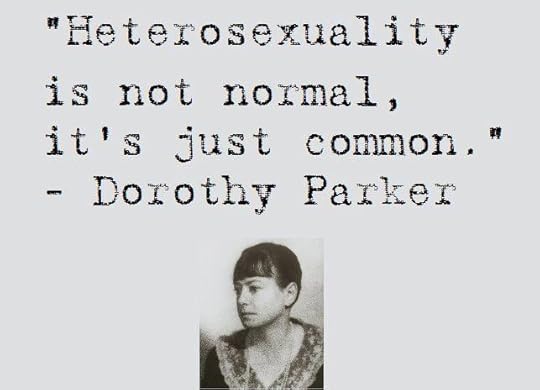


September 20, 2016
We All Write the Songs
No matter what creative field you work in, it can be tempting to worry about how your book/painting/song/performance/masterpiece/trashfire-on-a-deadline will be received by audiences.
I’m here to tell you to give up.
You are never, NEVER going to know how your THING will be perceived by any person at any time, and generalizing about humans is a fool’s game.
I’m going to give you two examples for this case; one from either side of the Creative Thing.
In the first one, I was a teenage girl on the receiving end of a creative work—in this case, a song by Alkaline Trio called “We’ve had enough.” If you’re not familiar, here it is.
Now, you have the benefit of seeing the video and getting clear reception. I heard this song on 99.9 The Buzz, a radio station that I could only sort of hear clearly by running sixteen feet of dipole (extra antenna) out my bedroom window in the middle of nowhere. So when I first heard this song, the following conditions were in place:
I was fifteen or so
It was full of static
I had been conditioned by Bad Religion to expect a certain level of socially adept lyricism in my punk rock.
So what I heard was:
Ain’t nothing on the air waving the despair we feel
I said we’ve had enough, put “Walk Among Us” on and turn it up
Ain’t nothing on the air waving the hatred we field
Misheard lyrics are common enough. The last word being “field” made more sense to me because it would have been better writing (sorry, Alkaline Trio) and also because “hate” wasn’t one of my common core emotions. Oh, I said it a lot, but what I used to call “hating” a thing I’ve learned to more accurately represent as either exasperation or annoyance. Fielding hate, however, was a thing I felt I did all the time.
In short, they wrote one thing and I heard another because there is no way they could possibly have accounted for all the variables of me specifically.
I have a second example from the other end of the Creative Thing. I wrote a book, the second in my first trilogy, that I thought was about LARPer nerds surviving the geological apocalypse and going on a journey to a newly established civilization. That considered, I was very surprised when I got a review that said (I’m paraphrasing):
Didn’t finish this book, got sick of the author shoving issues in my face. We get it, you hate Big Pharma.
I try to take negative reviews and use them to make my work better. I really do. I also understand that you can’t entertain everyone. Sometimes some people are just not going to like some books. But I had no idea what to do with this review, because I can not connect it to reality as I know it.
I do not hate “Big Pharma.” I have serious chronic health issues, and “Big Pharma” keeps me alive. I do take issue with companies price-gouging or releasing new drugs strictly to avoid patent expiration losses, but so does any informed and humane citizen, and more importantly, none of that ever comes up in the book. Ever.
The things in the book that could possibly considered pharma-related are Mab discussing how menstrual cups are better than tampons in a survival situation, her handing out Midol for the caffeine, and the gang trying to bring life-saving drugs back to the new city of survivors. If anything, my message was “drugs are good, and we’re going to have a lot of problems if they ever disappear.”
So how do I turn this bad review into constructive criticism? I don’t. How do I figure out what circumstances led that reader to see BIG PHARMA SUCKS written on the fictional walls when I didn’t put it there? I hella don’t. I’m never going to know. I would have to learn everything about them, and then maybe have a clue as to why they read what they read when I wrote what I wrote. And even then, there’s some other reader out there who’s going to think that any new “improvements” I gained from that insight made me a shill for drug companies.
The short of it is, stop worrying about what people are going to think. People are complicated, you can’t please (or even be understood) by everyone, and that’s okay. You have no choice but to write your truth. If you try to write to someone else’s truth, you’re just going to turn your own into a mess.
Become an audience agnostic. Somebody will probably like you, somebody probably won’t, and you’re never going to understand any of it. Let it go and make the Thing.


September 17, 2016
Some Recommended Reading
My secret side job isn’t much of a secret anymore, so I guess I’ll shrug one shoulder out of my shroud of mystery and write this post.
I’ve been doing freelance copyediting in various forms for years now. Editor Brain, which is was I call the jerk part of me that irrationally assigned itself Guardian of the Oxford Comma, can’t help it. I once replied to a Craigslist job post to tell them that their spelling was atrocious and they should try again. (I was maybe a little bitter about job hunting in those days.)
I’ve been giving blog posts and resumes and short stories a once-over for friends most of my life, but then I started writing books. I made many more writer friends.
Many. Many. More.
And they all needed an editor. (Everyone does. Don’t kid yourself.)
At first, I only did free work for close friends who couldn’t afford market rates. Even when I started charging, I did so minimally and with the understanding that I could provide improvement but probably not perfection. The more work I did, though, the better I became. I also acquired a small reference section just for the job.
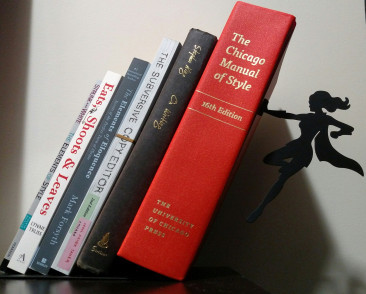 Truth is, I memorized three of these a long time ago. But they look nice on my desk.
Truth is, I memorized three of these a long time ago. But they look nice on my desk.Word got around that I was reasonably competent. Work rolled in. I’ve done countless short stories and blog posts this year, as well as two full novels. I’ve learned a lot. I’ve gotten to pass that information on to people who find it useful. Somehow, I even made enough money to make taxes a further pain in the ass.
So, I guess I’m a freelance copyeditor now. Whoops.
The fun part is that I get to see projects before anyone else knows they exist.
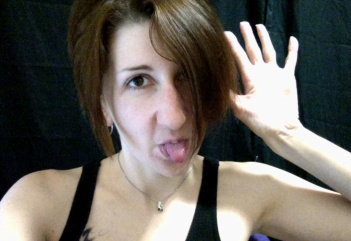 I know something you don’t know. *Phhhhht*
I know something you don’t know. *Phhhhht*But I’m going to be nice and tell you about some cool stuff you can see soon.
First up, an anthology that I not only edited but also wrote for, Unburied Fables. This project by Creative Aces Publishing is a collection of wonderfully queer fairy tale retellings. I won’t spoil any of them for you, but they’re brilliant.
Next let’s talk about RoAnna Sylver. She’s relaunching her book Chameleon Moon with some celebratory short stories. I got a sneak peek at those stories while editing, and they are certified Full of Feelings. Keep an eye out for them.
I would also like to point you in the direction Mari Kurisato, whose short story “Impostor Syndrome” now appears in Love Beyond Body, Space, and Time. I honestly did very little work on this story, but it was great before and it’s great now.
Most recently, I worked with Kate Fitzpatrick, who will hopefully forgive me for anything that got lost in translation between her Australian English writing and my American English editing. She’s got a hell of a manuscript. When it finds a publisher, I’ll be gleefully spamming you all with the release date.
That’s all for now, folks. I’ll keep you posted on anything I think you’ll want to see.


August 26, 2016
Welcome to New York
So, I’m walking up 3rd Avenue with an Ann Taylor bag swinging from my elbow when my phone chimes. There’s a new email from my dream tattoo artist, Young Bae. She’s not available for three months because she’s shooting a tv show. I sigh, think about hailing a cab because it’s humid as dog breath out here, but end up walking. I need the exercise.
When I get home, I order groceries delivered to my door and takeout gluten-free pizza to tide me over. I’m feeling good because I finally have both the right health insurance and the right doctors, and for the first time in five years, I’m getting better instead of worse. My biggest stressor is anxiety about my novel. My fourth novel.
When I sit down to write the week’s blog post, I get punched in the face with a left hook of surreality.
Who’s life is this? Who am I?
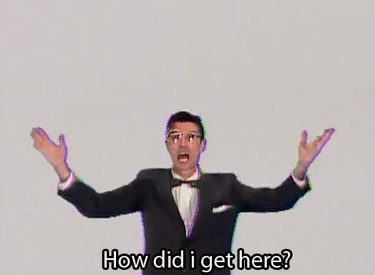
But then I shrug. Same me. Different circumstances.
I don’t look at my past and shake my head (though I sure as hell had a lot to learn). I won’t look at the present and do it, either. I always knew it was going to be a weird life. No one who gets knocked down a flight of stairs by a flying hug at a ska show after winning a $2000 writing scholarship is ever doomed to have a boring run. A stint in Manhattan writing novels is just more Escher progression.
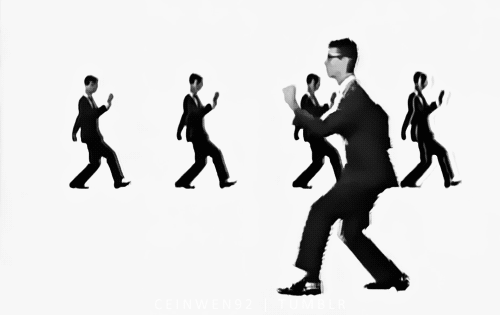 Same as it ever was.
Same as it ever was.But this city is a trip all by itself. I’ve moved around a lot, and most places in the continental US are basically the same; Moderately shitty apartments, a few dive bars that call themselves “world famous,” a McDonald’s, a city hall, and an Elm Street.
Portland, Oregon and Austin, Texas fight over the reputation of “keeping it weird.” Phoenix, Arizona is too hot and tired to bother developing character. Montpelier, Vermont is full of character but can’t avoid being comprised of the same basic elements as its gossiping little neighbors. Boston, Massachusetts (much as I love it) is still AnyTown, USA on steroids and Guinness.
Manhattan, on the other hand, is practically another planet. Drop a tourist here and they don’t know how anything works.* If humankind ever exports an international people-sampler to Mars and leaves them to forge civilization out of their variety for a few generations, the result will look a lot like New York City.
Living here, I’ve seen a very pregnant and body-painted Amanda Palmer stand naked on the steps of the public library (yes, the one with the lions) to gather book donations for children. I’ve skirted the New Year’s Eve celebrations in Times Square to spend midnight at a karaoke bar frequented by Broadway hopefuls. I’ve brushed off street hustles by faux-Tibetan monks and played my ukulele in Central Park. I’ve watched the Empire State Building light up in rainbows for Pride Day. I’ve been to a multi-million dollar picnic. I’ve gotten texts from excited friends who just saw Lori Petty on the L train.
Many of the world’s most interesting people end up here at some point, but most don’t stay. New York only sees them in their prime.
And you can sit in Bryant Park and watch them go by.
Do I belong here? Hell, no. Nobody belongs here. It’s not jigsaw puzzle. You can’t fit. It’s more of a Bingo ball cage that occasionally spits out the next big thing in American culture. The question isn’t whether you fit, it’s whether or not you think getting tossed around in an ever-rolling lottery of near-infinite outcomes is fun.
And I guess I do.
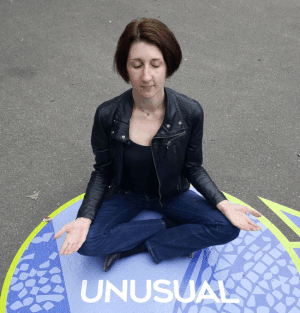
*I thought I would add a few tips for tourists, because seeing you struggle is sad and, honestly, creates traffic jams.
If the number on top of a cab is lit, then it’s available. If dark, the cab is engaged. Also, don’t try to flag down a cab where there’s barriers between you and the street, like scaffolding or fences. Move to an open curb with a place for them to pull over & for you to hop right in.
If anyone tries to hand you something on the street, pretend they don’t exist. They’re playing on your trained behavior to be polite and take it. They’re selling something.
Yellow cabs take plastic. Dive bars and food carts, 90% of the time, still don’t. Keep a little cash on you if you’re out running around all night.
You’re almost certainly not going to get mugged, but that’s no reason to carry your bag like a tourist. Bring something with a crossbody strap. Also, clutches are stupid. You will leave that shit behind somewhere.
Stop looking for famous people. Seriously. Yes, they live here. No, you probably won’t see them. If you do, they’re just trying to go about their day like everyone else. Go to Brooklyn and count Rent cast lookalikes; you’ll have more fun.
(Originally composed for Pandamoon Publishing.)


June 14, 2016
“The Author, Who Identifies As…”
It being Pride Month, I figured this would be a good time to address the identity question, as well as share a little bit about my personal journey with labels.
Gender was the easy one for me. I’m a cis woman. I don’t exactly conform to stereotypes (I can’t do makeup, I curse a lot, I wear mostly jeans, and when my health was good I preferred muddy manual labor over shoe shopping), but when I reach deep down in my own soul, what I find there feels basically lady-shaped.
Sexual orientation was a lot harder.
(To anyone who knew me back in the day and happens to read the following: Hey, you. You’re probably going to be a little confused and/or surprised. Feel free to go to the comments and say “WHAT?!” I promise not to take it personally. I’m feeling quite secure like that these days.)
“Presumed Straight”
Though things are shifting now, and hopefully acceptance continues to grow and nudge intolerance further out of the way, I grew up thinking that everyone was presumed straight. Not just straight, but a list of things: Heterosexual, heteroromantic, cisgender, monogamous, and generally intending to breed.
I knew that I was not quite those things. However, not having any driving need to do otherwise, I amicably went along with the expectations. Boys seemed interested in me, though most of them thought I was weird, and therefor expressed their interest through a range of methods up to and including threats of sexual assault.
Once, around age sixteen, a sports-type boy stopped by the little corner where I was reading, alone, and asked “What would you do if I took my dick out right now?” I responded that I would remove it from his person. He called me a freak and left. To this day, all I can think is, You’re the one threatening to expose yourself to girls quietly reading books, buddy. I’m not the weirdo here.
This was enough to make me wish I was a lesbian, but it just wasn’t the case.
Boys who were outcasts like me were generally nice enough, and I dated a few of them. At this point, I formed my first opinion on how I felt about sex: Nice, but not necessary. I also didn’t see the need to restrict interactions based on gender. Girls seemed nice, too.
There was an aggressive atmosphere towards anyone perceived as even possibly not straight. It was a small, backwoods kind of place. Boys got the worst of it. Most who were actually gay stayed in the closet until they left town, waving middle fingers out the window on their way. My best friend (and first kiss) went away to college and promptly got a rainbow tongue stud. Surrounded by the casual use of homophobic slurs, I, too, decided to keep my head down. Not that I could magically make myself normal or popular, but at least I could dodge this particular angle of attack. I dated boys. I looked more or less like a girl was supposed to. Nobody would suspect.
Though I didn’t know at the time (and neither did they), I left high school already counting among my exes a gay man and a trans woman. My path didn’t get much straighter from there.
I left college with the following ideas: I was bi, casual sexuality was instrumental to a woman’s empowerment (yes, I was more gullible back then), and though I liked women, women didn’t like me. So men just sort of kept falling in front of me, and sometimes I dated one. Then I tried my hardest to make it work. It generally didn’t. Some of that was my fault. Some of it was that when you let romantic partners ‘just sort of happen’ to you, you tend to get ones that are a bit wonky around the edges. Especially if you hang out primarily with punks and gamers. Which I did.
Fast forward several years. Out of intellectual curiosity, as well as the drive for oddball companionship, I’ve spent time with just about every type of fringe crowd you can imagine (and some you probably can’t). I got to know a lot of people, with a lot of different sexual orientations and interests, and I finally started to see what was different about me.
I had never in my life lusted after a celebrity or a stranger. I was never actively looking for new sexual partners. Sex was obviously very important to other people, and I fumbled through that, but where most people’s internal monologue regarding sex would be, all I had was echoes. It was reactionary and rote. Not that it couldn’t be nice or meaningful in certain contexts, but whatever connection most people have between their hormones and their desires was absent in me. My hormones checked with my emotions before they even thought about making a move. Anything sexual I did that wasn’t based in a very strong romantic emotion, I did because I thought it was expected & I didn’t mind.
I spent a period of time thinking that I was a defective bi girl.
The finally, someone on the internet came along and said “Hey, there’s a word for that.”
Asexual.
And there are all kinds.
So I rolled around in the pile of new ideas for a while, trying on the different labels like new jeans to see what fit me best, and at 29 years old, I finally found the words for me.
Biromantic demisexual.
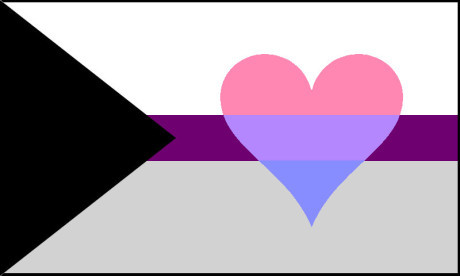
Thanks for listening, folks. Happy Pride Month.


June 1, 2016
WrrrdNrrrdGrrrl’s Shiny Self-Publishing Advice
90% of all writing advice is trash.
But I’m going to give you some anyway, because there have been requests and I’ve got some time on my hands this afternoon while I wait for a lidocaine shot to wear off. So here goes.
On Self-publishing:
Write the book first. This shouldn’t even have to be said, but for some reason, it does: Not a damn bit of the following advice matters unless you have a finished manuscript cooling. Thinking about the future of your book will do you no favors while you’re trying to write one. On a personal note, please don’t grill authors for advice on your hypothetical book. We’ve kind of got our hands full helping out people with existing manuscripts. If you’ve got a zillion questions about publishing, but you haven’t started writing yet, your head is in the wrong place. So go fix that. Maybe read a book about the lives of writers. My favorite is Bobbed Hair and Bathtub Gin.
Once the book is done, IT IS NOT BLOODY WELL DONE. You need to go over it at least once by yourself and once with an editor. If you can’t afford to hire an editor, at least find a word-minded friend to beta-read and take notes for you, because if you write “The End” and slap that mess up on Amazon, I shall be very cross with you.
If you want to do right by a manuscript, here are the steps:
Second draft (maybe third or tenth, depending on how it’s going)
Beta readers for feedback
Final in-your-house draft
Professional editor
Final draft with editor changes
Then your manuscript should be ready to take out in public. You’re probably going to have massive soul-crushing doubt at one or all of these stages. Don’t worry, it’s normal. It will pass when you’re dead.
On your second draft: Wait a while. You’re not going to see it clearly for at least a month. As Stephen King said in his book of damn fine advice, On Writing, it should feel alien, like somebody else wrote it. That’s how you know it’s ready. Don’t be scared to make changes: It doesn’t mean you were wrong, it just means that now you have an even better idea. If you find mixed metaphors or bad clichés, kill them. And remember to take notes on any really funny typos. They make great stories. My personal winner is “two bottles of bear.”
On beta readers: Really, there are two kinds I think you should focus on. The first is the take-no-shit reader. This one is going to be your friend who reads a lot and is also willing to tell you when your fly is down in public. The other kind is a sensitivity reader. If you’re writing about a black woman, and you are not a black woman, find one who wants to read your story, because unlike friend #1, she’s going to KNOW when your fly is down in public when it comes to racial issues and treatment. You may have to pay a sensitivity reader for their time. It’s worth it. They can keep you from accidentally doing disservice to the people whose stories you’re trying to write.
On editors: They’re not all created equal, and you get what you pay for when it comes to their skill level, experience, and time investment. That said, just about any editor will do you some good. An editor is right 99% of the time. You will only listen to them about 75% of the time. Most editors will forgive you for that.
So you incorporate your editor’s changes and you have a finished manuscript! Huzzah! You’re done! HAHAHAHAHAHAno. Now the new project is in front of you. You need to turn a manuscript into a book. Are you publishing ebooks, paperbacks, or both? Both? Whoops, that’s two projects. Fortunately, you can use some assets for both projects. The things you will need are:
Cover art
Cover design (ebook)
Cover design (paperback)
Interior design (ebook)
Interior design (paperback).
Assess your skills. Are you an artist? Does your style match your book? Awesome. Get arting. Otherwise, you will need to barter with a friend or hire a professional.
Note that cover art and cover design are not the same thing, though if you hire an artist who specifically does book covers, they can do both. Otherwise, you still need to get art turned into a whole cover.
On cover art: Do at least one of two things. Either have an artist who has time to read the book (no problem if it’s yourself, obviously), or give a lot of references. A sketch is a good place to start. Googled photos that kind of look like characters can be very helpful.
On cover design: If you do it yourself, prefab covers like CreateSpace and Amazon let you make may be the only way to avoid tearing your hair out. It’s just not as simple as it seems. My advice is, professional, or prefab. If you want to do it yourself, be prepared to spend hours and hours of your life getting it right. Trust me on this.
On interior design: My advice here depends on what kind of standard you hold the book to. If you want hyperlinks in your ebook or a print book with big publishing house flourish, hire a pro. But if you can’t hire a pro, hunker down and learn the basics so that you can do a passable job yourself. It’s not going to be perfect, at least not until your tenth or twelfth try, but a mediocre interior design job won’t put off the casual reader. A really crappy one will, though, so put in the effort.
Other stuff:
You’ll probably want some kind of non-book book merch. If you’re planning on selling books at conventions or even just having a release party, it’s a good idea. Business cards are good. Bookmarks, and/or one more creative trinket like buttons or stickers are good. Do not go buy one of everything under the sun with your title emblazoned on it, unless you plan to open a bookstore dedicated to selling just your own book. (If that’s the plan, you’ve obviously got some money laying around and can do whatever you want.)
Have reasonable expectations. Your book can be brilliant and still only sell a few copies at first. Unless Oprah is pushing your book, building an indie writing career takes time and effort.
Assuming that Oprah is NOT pushing your book, you’re going to have to do it. Publishing your book and then waiting people to find it is a great way to ensure that it collects dust. Make sure you have writerly accounts on all the usual social media, and update one or two of them routinely. Readers do find writers this way. It’s also a good way to find yourself surrounded by author-friends.
Yes, people do buy books just because they seem interesting. Name recognition would be helpful, but it’s not the all-powerful force it used to be (thanks, internet!), and a $2.99 ebook is a low-risk investment for them. But they have to see it first. If you’ve got a Kindle book and a hundred bucks, advertise on Amazon. For smaller budgets, advertise on Goodreads or Twitter. (You have those, right? RIGHT?) When given an opportunity, throw your business card at a new acquaintance like it’s no big deal; People like saying they met a published novelist, a bit the same way the like talking about seeing a funny monkey at the zoo.
I know I just said to get your book in front of people’s faces, but now I’m going to make you walk the tightrope and say DON’T BE A SPAMMY SPAMMER. NOBODY LIKES THAT. Don’t DM everyone who follows you on Twitter with a buy link. Don’t harangue your friends. Absolutely do not under any circumstances shove your book into people’s personal space. Let them come to you like birds to a Disney princess. When embarking on a new promotional technique, always ask yourself if it’s a hint or a hammer. Hammers are bad.
Someone will hate it. Don’t let your eyes gloss over good reviews and then suddenly develop Laser Eagle Vision when you catch a bad one. You’re gonna get a range of reactions, and that’s okay. If it helps, make fun of the bad review with some friends. The reviewer has their reasons, you’re not their cup of tea, and that’s perfectly fine. Someone else is really gonna like you. They probably already do.
People who may be good for you to know.
S.A. Hunt, who writes cool books and makes great covers.
Ashe Armstrong, who put a damn fine book through the self-publishing maze with class and is very friendly.
Krista D. Ball, who gives great advice and writes good examples of inclusive fantasy. (Don’t be demanding, though, she’s a busy lady.)
Jen Foehner Wells, who writes awesome space fiction and wins hardcore at internet marketing.
Tiffany Rose, who is a Wattpad expert writing lovely hacker stories.
And me. Yes, you can come to me with occasional questions about stuff not covered in this post. I might even have answers. As long as your first draft is done.


May 28, 2016
Things To Which A Woman Should Always Respond “Fuck You”
“Why won’t you give nice guys a chance?”
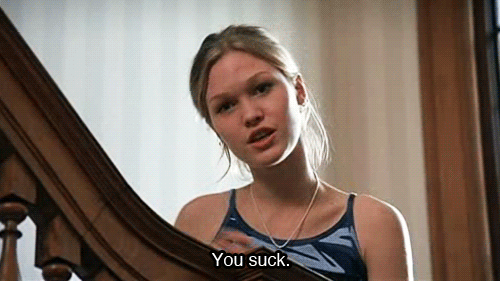
“It’s unprofessional not to wear heels.”

“Is this comic/video game/power tool for your boyfriend?”
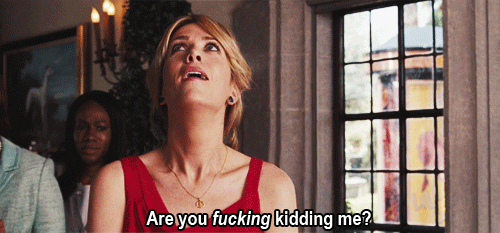
“Value yourself (by conforming to societal expectations of what to do with your body).”
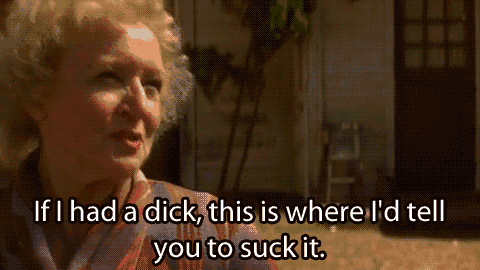
“You need to be more polite about your feminist talking points.”
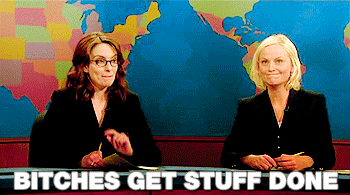
“You should smile more.”
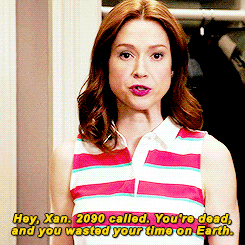
“Having body hair is unhygienic.”

“Girls just aren’t into STEM.”
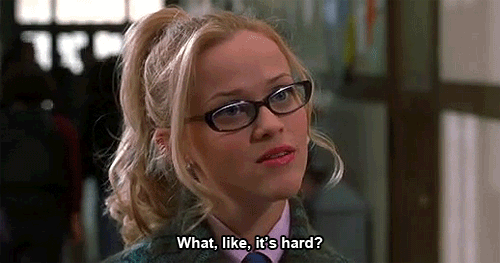
“You’ll change your mind about having kids.”
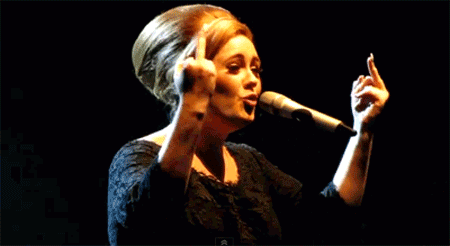
“Sexism is over.”
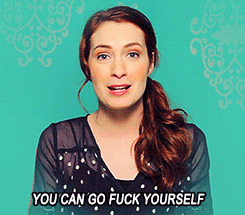


May 23, 2016
InkItt: Spam, Scam, No Thank You, Ma’am
Authors are hopeful creatures. Our industry is rough, we all get rejected at least once (and usually more like a hundred times), and sometimes we’re left sitting there with 80,000 words of our soul, wondering if anyone is ever going to love us.
This is why I DESPISE spammy and scammy publishers. Trying to scavenge the living bones of an author’s hopes, dreams, and hard work is fucking low.
And today, they went after me.
Unfortunately for them, I am not desperate. In fact, I have a lot of fight left in me. I’ve got two novels out, one more coming from a medium-sized publishing house in the Fall, and one currently in progress. I’m in the relatively privileged position to tell these vultures where to stick their “chance at an offer of publication.”
So, let’s talk about InkItt.
First of all, what’s wrong with it? Well, the good news is, they don’t seem to be straight-up asking for money, unlike the usual vanity publishing scams. The bad news is, to “submit to their contest,” the thing they’re spamming you to get you to do, you have to publish on their site. There go your first publication rights. Now no normal publisher will touch your manuscript, because it’s already been published. The contests offer (very) small prizes and a chance to get shopped around to real publishers…which is the job of an agent, not a publishing house.
And then there’s the spam.
This morning, they tweeted at me from one of literally dozens of their accounts.


No legitimate publisher will EVER tweet at you out of the blue with an offer. That is not a thing.
I responded to this, more or less telling them to piss off. They immediately deleted the tweet. But they continue to go after people (alphabetically, no less) who tweet about writing, giving each one the same canned ‘inquiry.’ I replied to each one of those, warning the recipient that InkItt is a gross scam. They’ll probably block me soon.
Then I searched “InkItt” on Twitter, and started reporting ALL of their accounts for spam, because they are, and I am vengeful.
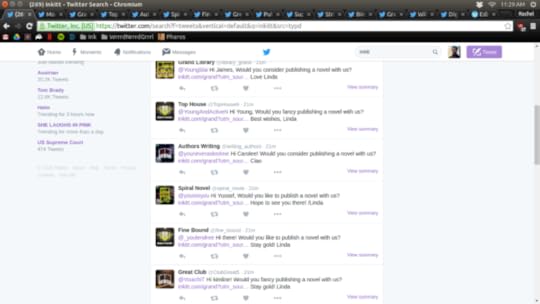
And when they noticed that I was going to war with their spam accounts, they hunted down my email and contacted me.
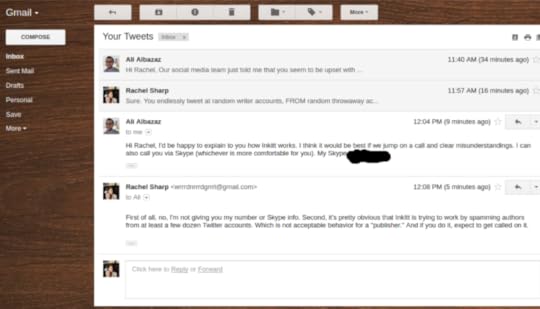
At time of writing, they had stopped responding. So. That went well.
If any “publisher” is spamming you like this, report them. They can’t dupe you, but the next author might be more desperate or less informed about scavengers.
And if you get bored, here’s a list of their Twitter accounts to report. This isn’t even all of them: This is just the first few pages of search results for “InkItt.” They’re nearly identical, reusing images and text, spamming the same endless spam.
InkItt’s actual account:
InkItt’s spam accounts:
https://twitter.com/MonumentScript
https://twitter.com/library_grand
https://twitter.com/writing_authors
https://twitter.com/spiral_novel
https://twitter.com/fine_bound
https://twitter.com/ClubGreat5
https://twitter.com/public_fiction
https://twitter.com/buckram_superb
https://twitter.com/striking_block
https://twitter.com/binding_guild
https://twitter.com/script_grand
https://twitter.com/wild_bookrest
https://twitter.com/DigitalPublish7
https://twitter.com/backstrip16
https://twitter.com/LabelBookrest
https://twitter.com/LiteraryLibrary
https://twitter.com/monumental_book
https://twitter.com/superb_bound
https://twitter.com/Digitallibrary5
https://twitter.com/bookrest_fine
https://twitter.com/BackstripPublic
https://twitter.com/AuthorsNovelist
https://twitter.com/splendid_club
https://twitter.com/binding_fiction
https://twitter.com/BookStriking
https://twitter.com/grandhouse7
https://twitter.com/great_buckram
https://twitter.com/digitalblock5
…and more.
Stay savvy, folks.


May 17, 2016
Femininity and Gatekeeping
This is a story about a lot of things, but to keep it simple, I’m going to focus on two subjects: Britney Spears, and pleather jackets.
The overall theme of this piece will be how women are taught to feel about other women, and to jealously guard femininity like it’s some kind of precious metal instead of just an attribute with no inherent value, positive or negative.
Let’s talk about the jacket first.
It looks a little like this.

I’m sure you’ve seen one like it. They were very popular in the late nineties and early aughts. And unless you had a button nose and abs like Buffy the Vampire Slayer, they were not for you. Only Pretty Girls With a Bad Streak™ were allowed to wear them. I got the message loud and clear that if I, Lanky Girl with a Bumpy Nose™, were to wear one, that would just be ridiculous. It somehow escaped me that girls I knew who wore them also had flaws. Obviously they weren’t too flawed to pull off this jacket. But I was.
It also escaped me that this thing marketed as a motorcycle jacket had nothing to do with badassery at all.
Because women who ride motorcycles don’t look like this:
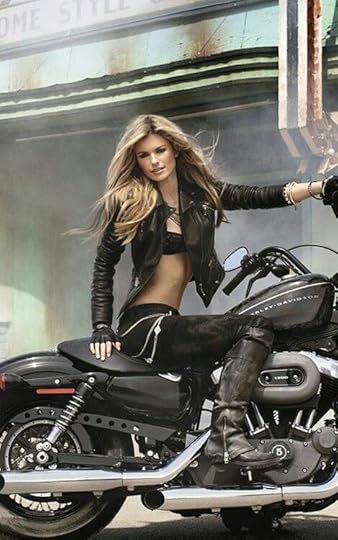
That is what a woman posed to look like she rides motorcycles for straight male attention looks like. Can you imagine the road rash you’d get if you ever had to ditch a bike on the highway in that outfit?
A woman who actually rides motorcycles looks more like this.

But I didn’t take any of that into account regarding the jacket. It looked tough and sleek and I wanted it but also somehow knew that I would be looked down on for wearing it, because I just wasn’t sufficiently cute.
Teenage girl logic. It’s twisted.
But that’s not the fault of teenage girls.
Which brings us to Britney Spears.
(And no, it’s not her fault, either, and if you thought that, go sit in the corner and think about what you’ve done.)
My first memory involving Spears, a major pop star of my generation, was of seeing her on MTV wearing a schoolgirl outfit and singing something that seemed trite to me even at eleven. My mom (a woman wise beyond anyone’s earthly years) walked through the room, paused, looked at the tv, and then at me. She asked me, “What is it you like about her?”
I don’t remember what I said. Probably “I dunno.”
But what I meant was: I don’t like her. I don’t even understand her. She looks kind of sad, but everyone else likes her and I’m under the impression that this is supposed to be fun and entertaining. Also, I’m eleven, so I’m enthralled by anything I don’t understand and that still means pretty much everything. Also, this song is awful.
My own teenage years took an early and particularly steep turn for the rebellious. Somewhere around the time I was passing through punk and into a third-wave ska / proletariat advocacy / baby feminist phase, it was too late for some long-cemented beliefs to be examined: Britney Spears was fake and plastic and awful. She sucked. Even when I took an interest in the life story of Courtney Love, a bottle blond with a nose job, I didn’t reconsider. Even when (briefly and misguidedly) believed that being sexy was what made women powerful, I didn’t reconsider. Even when I started studying how society pushes ideas on women about themselves that are complete patriarchal bullshit, I didn’t reconsider. It was just a fact of life. The sky is blue. The earth is round. Britney Spears sucks.
And then I read this.
Britney Spears isn’t some mythological monster. She’s a person who was fed the same awful messages about herself that we all got, and who wanted to be liked. She had some advantages, she tried to use them, and life happened to her anyway. There is no reason to hate her, or the Kardashians, or any other woman trading on being beautiful. They’re all subject to the same pressures we are. If they’ve been more successful at “being beautiful,” it just means that they have to try even harder to conform to the absurd beauty standards than the rest of us, because the reward for digging the deepest hole is always a bigger shovel. We’re all stuck with the cultural obsession of judging women by their looks. Those who “pass” according to the ridiculous standards aren’t blessed. If anything, they’re less likely to be taken seriously when they try to do anything else.
But we all want to “pass.” Maybe we’re not worried about flying colors, but we all judge ourselves by our looks…by attributes that ultimately mean nothing in this universe.
And we do it to everyone else, too.
The lizard brain, if you believe in such a concept, is wired to see other women as sexual competition and size them up as such. So we can’t help it, right? Well, there’s two problems with that concept. One, if we were sizing up competition because of our instinctual preoccupation with reproduction, we would always be jealous of a woman with wider hips, or who demonstrated superior spatial reasoning skills. Things we do intentionally, like having green eyelids or blue nails, would be seen as signs of disease. So that’s obviously not the whole story here. The second problem is that if we have ‘lizard brains,’ they’re not the ones driving. Can you see a stick of butter and not eat it? Can you jump out of a plane because you know you have a parachute? Congratulations. The lizard brain can’t do these things. Maybe it also can’t meet another woman without sizing her up as sexual competition. But you can.
If you accept that basing your sense of self-worth on being feminine or desirable is ridiculous (and it is), it follows that there is no reason to gatekeep femininity. There’s no reason to judge men for being ‘too feminine,’ women for ‘not being feminine enough,’ trans women for not ‘passing,’ trans men for not fleeing far enough from ‘girl stuff,’ or non-binary people for taking or leaving whatever aspects suit them. Making these judgments serves no purpose. Let them go.
And this is a young, thin, cisgender woman with big anime eyes and long legs talking. I’ve got a lot of currency in this game. If I can call it for what it is and walk away, so can you.
P.S. In my mid twenties, I did finally buy one of those jackets. It did not affect how cute, badass, or confident I am. But it does keep the rain off.
(Originally composted for the Pandamoon Publishing blog.)







